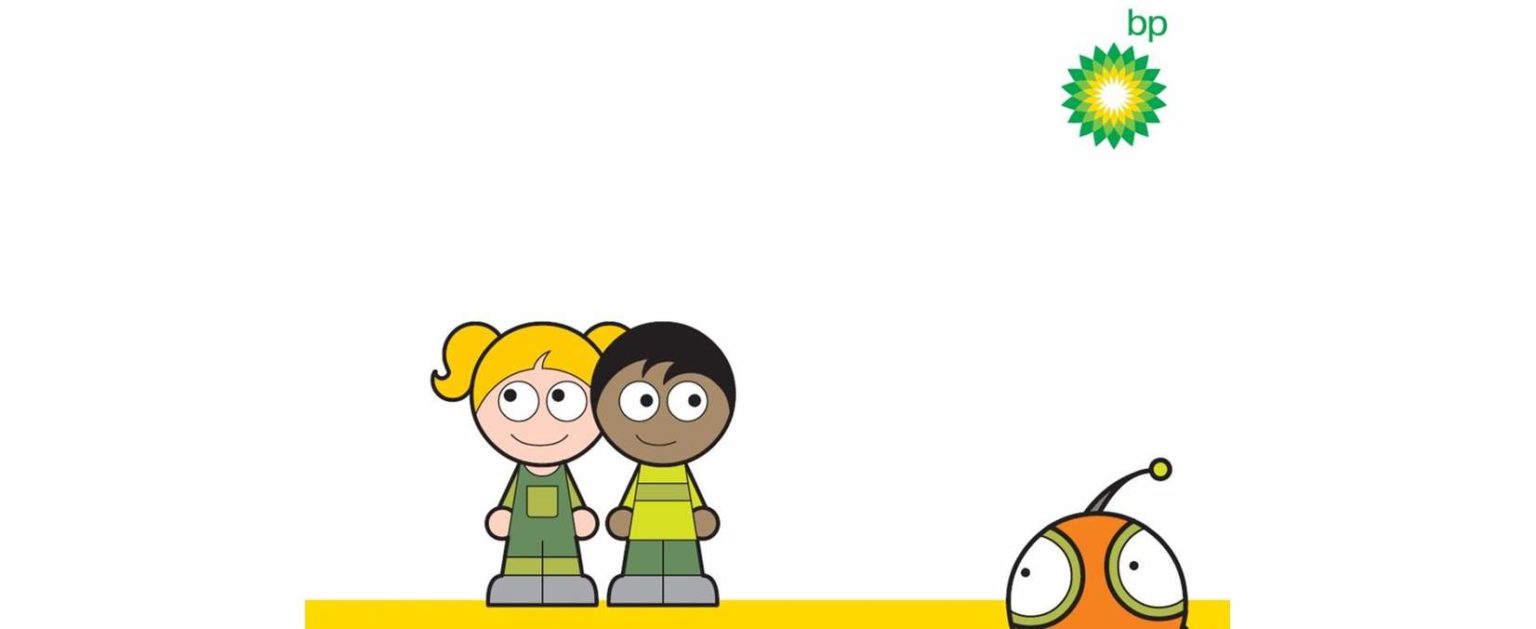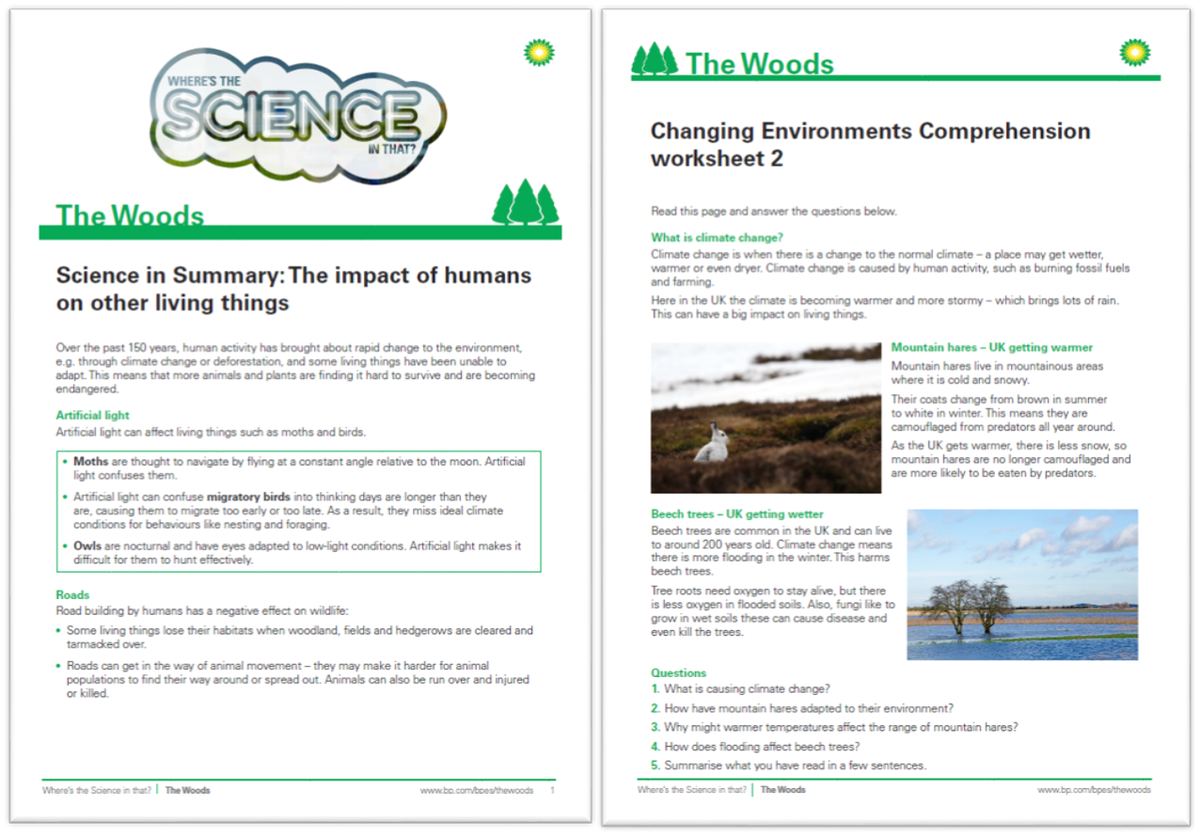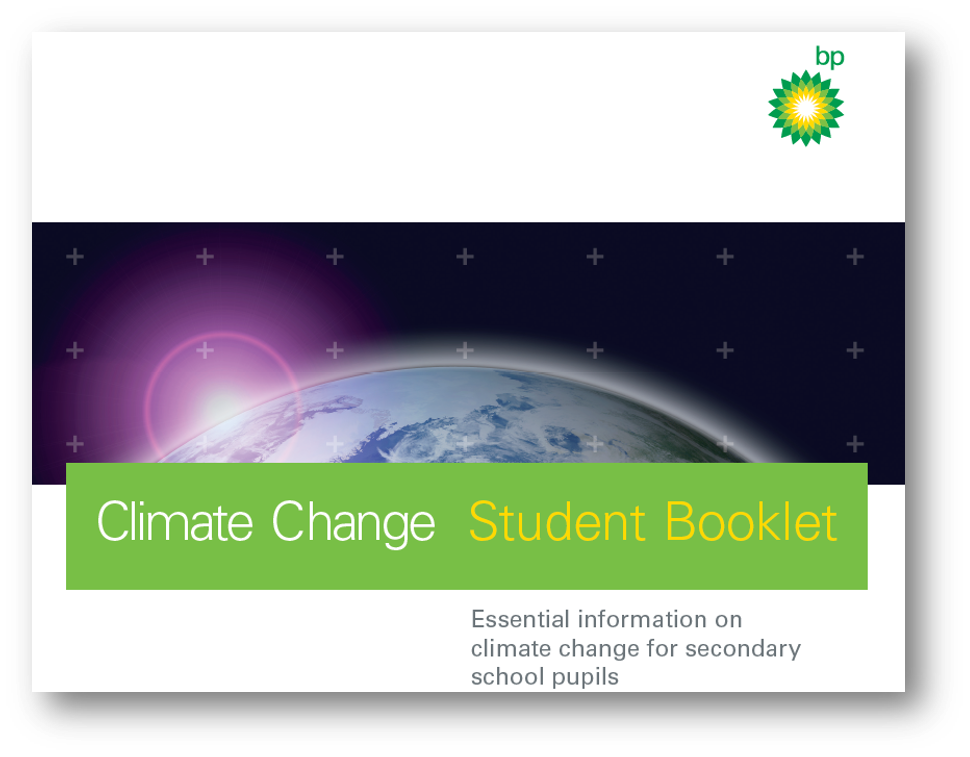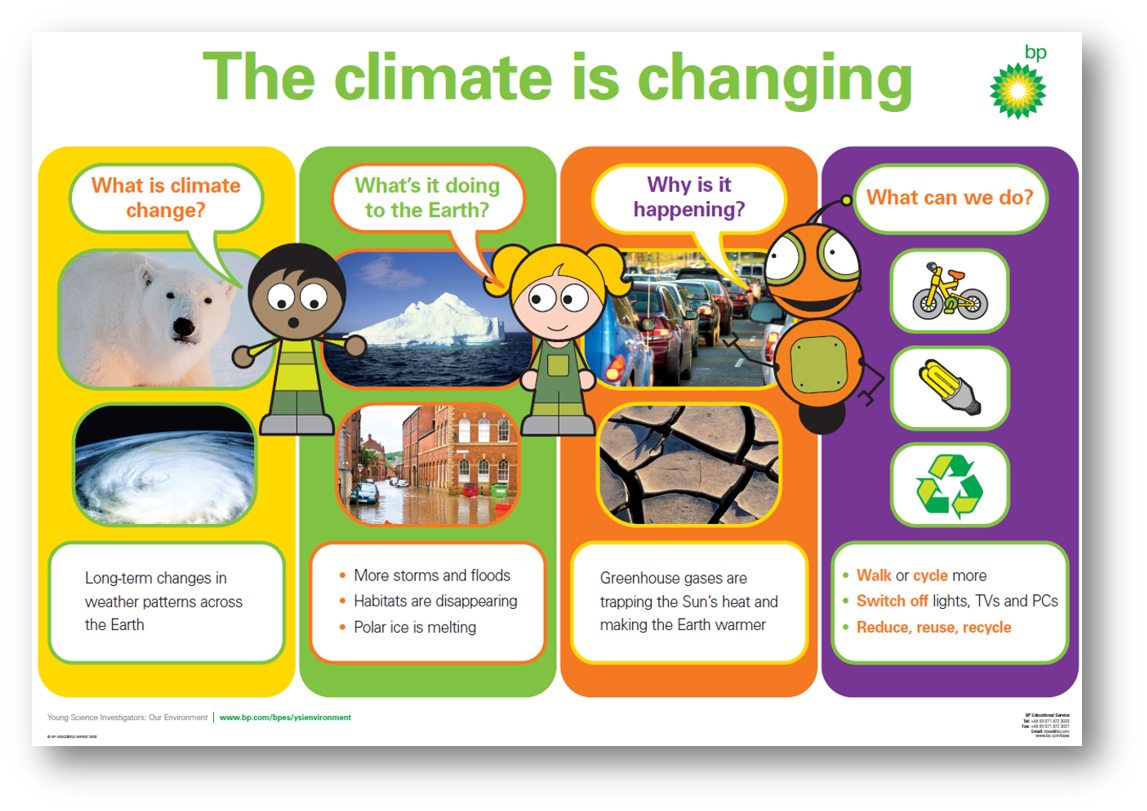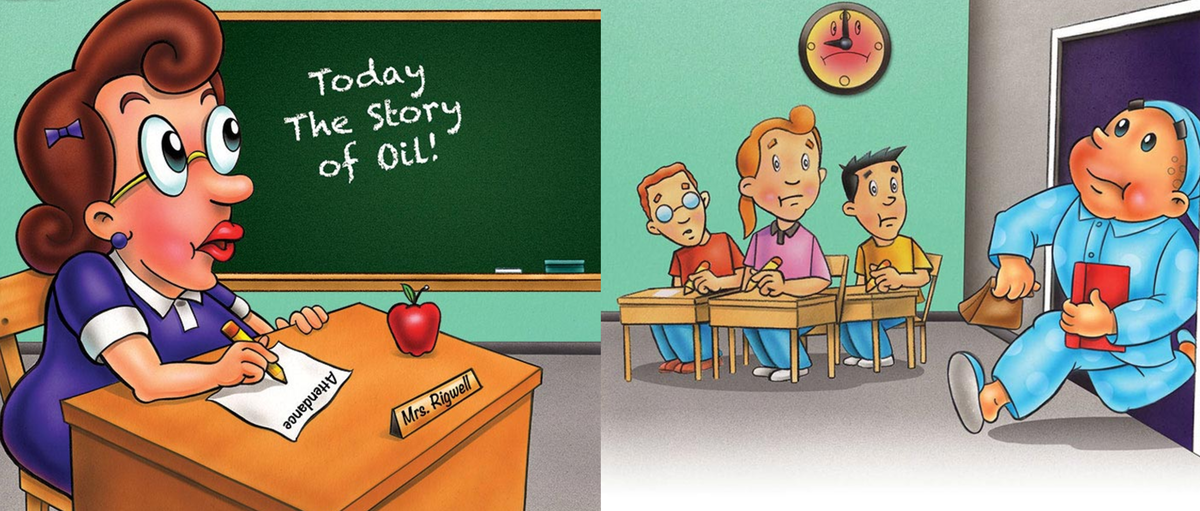The methods may change from country to country, but it’s clear that fossil fuel companies are desperate to push their message onto kids.
US companies promote fossil fuels in schools through a weirdly sinister cast of characters including Petro Pete and Sammy Shale. And now BP has launched a new set of resources for primary school kids in the UK.
The “Science Explorers” series provides free online resources for children aged between 5 and 11 years old, and includes a few for investigating why the climate is changing. The resources are tuned towards one big question: “Why are living things the way they are?”
Since the world starting burning fossil fuels during the industrial revolution, scientists say the world has warmed by about one degree celsius — with some pretty startling impacts on plants and animals.
Analysts say that to curb warming to two degrees, companies will have to leave around a third of oil reserves in the ground.
While BP acknowledges the role of humans and burning fossil fuels in climate change in its resources, the company subtly shifts focus away from fossil fuels as the main cause behind rising global temperatures and onto other factors when discussing major environmental disruption.
As a range of experts told DeSmog UK, the language used by BP means it is not completely up-front about how the fossil fuel industry has contributed to climate change, potentially leaving students confused about who or what is responsible for the problem.
And the constant presence of BP’s logo on all the resources means it is able to push a greenwashed image onto children too young to untangle the inherent conflicts of a big oil company helping to teach environmental science.
Resources
BP has put together a big package of videos, student worksheets, and teacher notes to help kids understand how humans affect the environment. But there are some startling gaps in the resources.
The fossil fuel company’s resources are used by over 50 percent of the UK‘s secondary schools and 25 percent of primary schools, BP claims.
A video targeted at 8 to 9 year olds “looking at how human changes to environments affects living things” doesn’t mention climate change a single time.
Instead it focuses on how electric light affects moths, or how roads impact migrating toads.
BP also provides a “Key Earth events” timeline for 10 and 11 year olds to help them “investigate how living things have changed over time”, which leaves out the industrial revolution — despite geologists now considering that moment as the start of a new epoch in Earth’s history dubbed the Anthropocene.
BP also continues to provide a wide range of older resources for young students from previous initiatives on its website, including a cutesy ‘the climate is changing’ poster aimed at primary kids, a suggestion for a “mini-greenhouse” experiment, and a student booklet on climate change for teenagers.
The messaging across its resources is problematic, according to experts.
“BP is manipulating agency,” Nelya Koteyko, a reader in applied linguistics at Queen Mary, University of London, told DeSmog UK.
For instance, “in the poster there is no human agency, climate change is presented as occurring on its own [using] verbs like ‘becoming’”.
And throughout the resources, there is “no ‘we’ to allude to shared responsibility”.
The student booklet for secondary school children, which was first published in 2007, states that “while most now agree that human activity is contributing to climate change, it’s difficult to decide who is responsible and exactly what should be done”.
But that is “laughable at best, and an abdication of responsibility at worst”, Susanne Moser, research fellow at the Woods Institute for the Environment at Stanford University, told DeSmog UK.
The Intergovernmental Panel on Climate Change’s latest big report said scientists were 95 percent certain that humans are the “dominant cause” of global warming since the 1950s
Moser added that in the booklet, “BP points to human population growth first, while industrialization is mentioned as a minor second. The implication of that emphasis is clear: reduce population first and most because we obviously need industrialization.”
Emily Southard, campaigns director of US NGO Climate Truth, agreed that there is a problem with the language in the resources shifting the emphasis away from BP’s contribution to the problem.
The booklet asks who is responsible for climate change, “but we know who is responsible. The fossil fuel companies for extracting and burning this stuff,” Southard said.
Ultimately, throughout the package of worksheets and suggested experiments, she said BP simply “doesn’t address the obvious question of should companies produce more oil”.
Targeting the UK
The difference between BP’s UK school materials and those of some US fossil fuel companies is stark.
In the US, resources pushed by organisations such as the National Energy Education project — part-sponsored by BP — tell kids “a little warming might be a good thing”, as resources uncovered by the Centre for Public Integrity show.
In BP’s UK-targeted resources, the message on climate change is more accurate: “Climate change is caused by human activity, such as burning fossil fuels and farming,” reads one worksheet.
But that doesn’t necessarily make BP’s presence in UK schools acceptable.
Moser said that while much of the content is in itself factually accurate, the way it is presented is problematic. “My challenge is with the pedagogy, not with the contents per se,” she said.
“There are a number of implicit messages that are contestable: the order of things suggests importance.”
“Causes are not explicitly named. For example, animals are run over, but it’s not said that they are run over by a car.”
“While the subtle image of cars hints at human-caused, there is no exhaust coming out of the cars, so they actually can’t ‘see’ the cause, which is a leap of abstraction that kids don’t get.”
BP’s subtler messaging in the UK is more to do with understanding global markets than a genuine desire to offer kids honest information about climate change, Southard suggested.
“They know their audience. In the UK, it’s the classic hypocritical greenwash. In the US, where they’ve been much more successful at creating a climate of doubt, they are able to push a more explicit climate misinformation agenda,” she said.
“I think the differences between the US and UK materials shows how disingenuous this is. It shows it’s not for the education of our children, but to push their message.”
A spokesperson for BP told DeSmog UK that teachers “consistently provide positive feedback on the resources”.
“This includes rating the resources on quality, clarity, engagement of students, suitability and relevance to the curriculum,” they said.
Social License
But if kids aren’t going to buy BP’s products, why is the company trying to push its way into schools?
Sometimes these efforts are more targeted than others.
As DeSmog UK previously revealed, BP has a long-running agreement with schools and councils in Aberdeenshire to sponsor student tutors, with the hope of laundering its reputation in a community where it continues to cut jobs. The Science Explorer series potentially allows the company to promote its brand to ever more and younger children.
It’s all to do with trying to present a favourable image to communities, Southard said.
Initiatives like the Science Explorer series “goes to show the need for corporations to get them while they’re young, and for them to be seen as good actors in society. They see it as a good investment and are hoping it will pay off down the road.”
“They do it for social license. It is that social license that gives a lot of power to the fossil fuel industry to continue with business as usual, even though we know business as usual takes us down a very dangerous path. And a lot of educational institutions provide this social license, because they’re grateful for the money and don’t always see the conflicts.”
Moser agreed. With its logo-adorned videos and worksheets, and regular references to what BP is doing to tackle environmental problems, she said the activity is ultimately little more than BP practicing “blatant advertising in schools”.
Subscribe to our newsletter
Stay up to date with DeSmog news and alerts


